
Study of ancient predators sheds light on how humans did – or didn’t – find food
A new Rice University-led analysis of the remains of ancient predators reveals new information about how prehistoric humans did – or didn’t – find their food.

Study of ancient predators sheds light on how humans did – or didn’t – find food
A new Rice University-led analysis of the remains of ancient predators reveals new information about how prehistoric humans did – or didn’t – find their food.

NSF-backed project to examine ‘electrifying everything’ in Houston, LA
A new National Science Foundation-funded study from a Rice University anthropologist will explore how two of the nation’s largest cities are embracing an electric future.

Rice experts available to discuss how alternative energy can ease foreign oil dependence
Amid Russia's war on Ukraine, Rice University experts are available to discuss how alternative energy sources could ease the United States' dependence on foreign oil.
Ancient DNA reveals surprises about how early Africans lived, traveled and interacted
A new analysis of human remains that were buried in African archaeological sites has produced the earliest DNA from the continent, telling a fascinating tale of how early humans lived, traveled and even found their significant others.

Rice archaeologists’ new video series gives inside look at historic plantation site
A team of Rice University students, faculty and staff at the Varner-Hogg Plantation Historic Site are in the midst of project to study newly discovered and long forgotten artifacts of slavery.

'Cultures of Energy' podcast returns on Groundhog Day
The "Cultures of Energy" podcast, hosted by Rice University anthropologists Dominic Boyer and Cymene Howe, returns Feb. 2 with the first of 10 new episodes after a more than two-year hiatus.
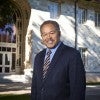
CAAAS lectures call for moral leadership in turbulent times
Robert Michael Franklin Jr., Marla Frederick, Lerone Martin and others to speak this semester at Rice
Undergrads share research on Texas slave trade
Rice undergraduates presented alongside historians and experts on the intra-American slave trade at the “Bound Away” conference Dec. 3-4
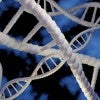
The ethics of studying ancient DNA: Rice scholar helps craft global guidelines
Geneticists and archaeologists studying ancient DNA should engage with stakeholders in the places where they conduct research, minimize damage to human remains and share their data, according to new guidelines outlined in a paper co-authored by a Rice University anthropologist and published today in Nature.
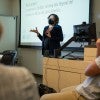
Initiative for the Study of LatinX America expands Latin American scholarship at Rice
ISLA seeks to position Rice on the cutting edge of contemporary studies and research
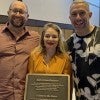
Former glacier inspires orchestral work
Okjökull first made international headlines when Rice anthropologists organized the first memorial service for a glacier lost to climate change.
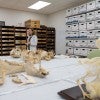
Old bones get new life in renovated Rice laboratory
The skeletons of more than 800 Southeast Texas animals are getting a second life in a renovated archaeology lab space at Rice University.

Graduate Student Loan Closet reopens, restocked and revamped
The ‘incredible resource’ for three decades of Owls had to shut down during the pandemic.

Rice sociologist Rachel Tolbert Kimbro named dean of School of Social Sciences
HOUSTON – (March 24, 2021) – Rachel Tolbert Kimbro, an award-winning educator and prolific researcher in the field of children's health, has been named the newest dean of Rice University's School of Social Sciences effective July 1.

People, papers and presentations June 28, 2021
The MD Anderson Leadership Institute at the University of Texas MD Anderson Cancer Center is an International Coaching Federation (ICF) Prism Award 2020 nominee.